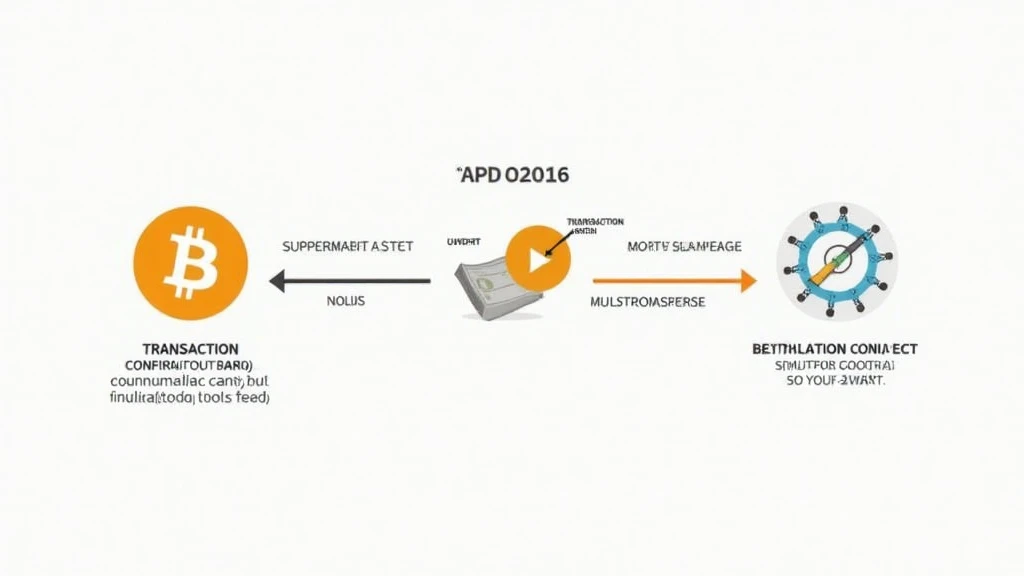Bitcoin Transaction Confirmation Time: An Essential Guide
In the ever-evolving world of cryptocurrencies, understanding fundamental concepts such as Bitcoin transaction confirmation time is critical for both novice and experienced investors. According to recent statistics, Bitcoin users experience transaction delays that can last from a few minutes to several hours, a matter that has raised concerns in the digital asset community. As of 2024, an estimated 65% of Bitcoin transactions were reported to be delayed, leading many to seek ways to enhance transaction efficiency.
Understanding Bitcoin Transaction Confirmation
When you send a Bitcoin transaction, it does not instantly appear in the recipient’s wallet. Instead, it first needs to be confirmed by miners, which involves the use of blockchain technology. Each block in the Bitcoin blockchain can store a limited number of transactions, and miners validate these transactions through their computational power. Once a transaction is included in a block, it is considered “confirmed”.
This process can take anywhere from a few minutes to over an hour, depending on various factors such as network congestion and the transaction fee you have set. For example, if more users are trying to send Bitcoin at the same time, miners prioritize transactions with higher fees, meaning those who pay less may experience longer wait times.

Factors Affecting Confirmation Time
- Network Congestion: This occurs often during market surges, where many users are transacting simultaneously.
- Transaction Fees: Miners tend to prioritize higher-fee transactions.
- Block Size: Bitcoin limits the block size to 1MB, which caps the number of transactions confirmed in a single block.
In 2025, experts predict that the average transaction fee may hit up to 0.002 BTC during peak times in congested networks.
What is a Confirmation and How Many Do You Need?
Each time a Bitcoin transaction is included in a block, it receives one confirmation. But how many confirmations do you actually need? The general consensus suggests the following:
- 1 Confirmation: For small transactions, this is usually sufficient.
- 3-6 Confirmations: It’s recommended for most transactions, especially in exchanges.
- More than 6 Confirmations: This is standard for large transactions and exchange wallets for added security.
The Importance of Bitcoin Transaction Confirmation Time
In a practical sense, the confirmation time is crucial for operational efficiency, especially if you are conducting transactions that are time-sensitive. For instance, if you’re using Bitcoin for real estate transactions or international remittances, even a small delay can have significant repercussions.
Real-World Implications
Imagine you are at a Vietnamese crypto exchange and wish to trade Bitcoin for VND. If the transaction confirmation takes too long, market fluctuations could lead to a loss. Hence, transaction speed can ultimately influence investment strategies in this fast-paced market.
How to Optimize Your Transaction Speed
To improve the speed of your Bitcoin transactions, consider a few proactive measures:
- Adjust Your Transaction Fees: Research historical fee trends and set a competitive fee that increases your chances of getting included in the next block.
- Use Off-Chain Solutions: Consider using solutions like the Lightning Network, which allows transactions to occur off the main Bitcoin blockchain.
- Transaction Timing: Avoid peak hours and consider sending Bitcoin during times of lower network activity.
Future Prospects of Bitcoin Transaction Confirmation
As the cryptocurrency market evolves, there’s a strong push towards enhancements in transaction speed and efficiency. Innovations in blockchain technology, such as the integration of advanced algorithms and sidechains, are anticipated to further impact Bitcoin transaction confirmation time.
In addition, the rise of decentralized finance (DeFi) platforms will require even faster transaction times to maintain competitive advantages. According to recent analyses, the transaction volume in Vietnam’s emerging fintech sector is expected to grow by 45% in 2024, underlining the need for solutions to the age-old delay in confirmations.
Conclusion
In conclusion, the Bitcoin transaction confirmation time will continue to play a fundamental role in how users engage with Bitcoin and other cryptocurrencies. Understanding this critical aspect can help traders and investors make informed decisions that ultimately enhance their trading strategies. While tools and methods for optimization exist, it’s essential to stay informed about the latest trends and data that shape the cryptocurrency landscape.
As we look towards a more dynamic future in cryptocurrency, it’s clear that transaction speed will become increasingly important. Consult resources like hibt.com to stay updated on the latest developments in Bitcoin and blockchain technology.
Be sure to stay ahead of the curve by continually educating yourself on these evolving trends. Not financial advice. Consult local regulators.
Written by Dr. Jane Smith, a blockchain technology researcher with over 15 published papers on cryptocurrency, and a leader in smart contract audits for major projects in Vietnam.




